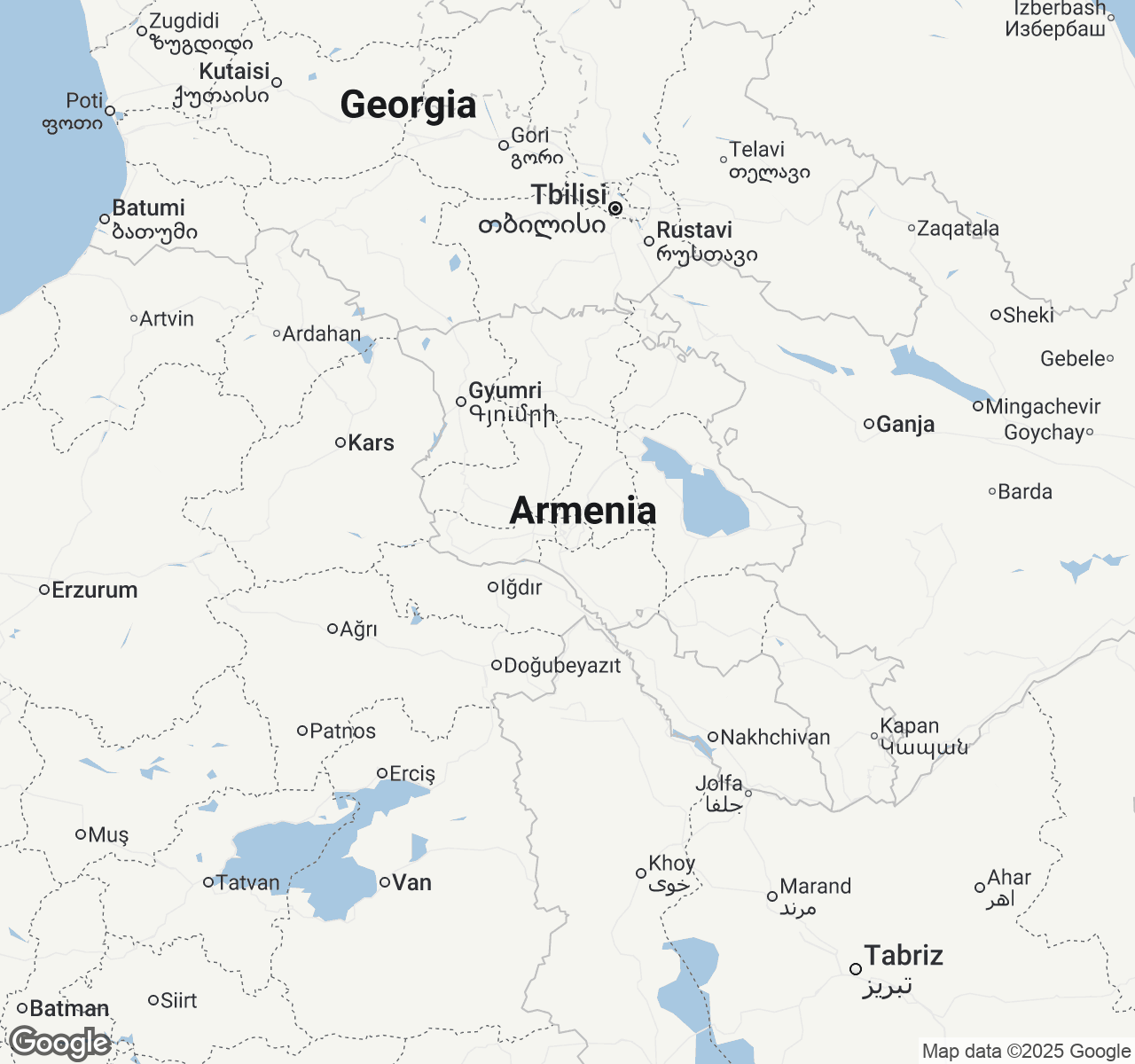
Things to Do in Yerevan
Discover the best of Yerevan
Plan Your Trip
Essential guides for timing and budgeting
Top Things to Do in Yerevan
Discover the best activities and experiences. Book now with our trusted partners and enjoy hassle-free adventures.
Explore Yerevan
Armenian Genocide Memorial
City
Blue Mosque
City
Cafesjian Center For The Arts
City
Cascade Complex
City
Erebuni Fortress
City
History Museum Of Armenia
City
Matenadaran Manuscript Repository
City
Mother Armenia Monument
City
Mother Armenia Statue
City
National Gallery Of Armenia
City
Northern Avenue
City
Opera House
City
Republic Square
City
Saint Gregory The Illuminator Cathedral
City
Tsitsernakaberd Memorial
City
Vernissage Market
City
Victory Park
City
Yerevan Brandy Company
City
Your Guide to Yerevan
About Yerevan
Yerevan pulses with an ancient soul wrapped in modern ambition, where the scent of barbecued khorovats mingles with the aroma of strong Armenian coffee drifting from sidewalk cafés. This rose-tinted city, built from volcanic tufa stone, glows like a sunset against the dramatic backdrop of Mount Ararat—Armenia's national symbol visible on clear days despite lying beyond the border. Every step echoes with 2,800 years of history, from the imposing Erebuni Fortress to the haunting Armenian Genocide Memorial at Tsitsernakaberd. Yet Yerevan is far from a museum piece; it thrives as the beating heart of Armenian culture, where traditional duduk melodies blend with contemporary jazz in underground venues, where master craftsmen still hand-weave carpets in workshops tucked between trendy galleries, and where three generations might share a meal of dolma while debating politics with characteristic Armenian passion. The city's soul reveals itself in these intimate moments—in the ritual of gathering around a backgammon board, in the reverent silence of ancient churches, and in the irrepressible warmth of its people who treat every visitor as an honored guest.
Travel Tips
Transportation: Download the GG app for ride-hailing (cheaper than taxis) or use Yerevan's efficient metro system (100 AMD per ride). Walking is ideal for the compact city center, but avoid crossing streets at unmarked areas—drivers rarely yield to pedestrians.
Money: Bring USD or EUR to exchange at favorable rates at exchange bureaus (avoid airport rates). Many places accept cards, but carry cash (Armenian Dram) for markets, taxis, and small vendors. ATMs are widely available with reasonable fees.
Cultural Respect: Dress modestly when visiting churches (cover shoulders and legs). Remove shoes when entering Armenian homes. Avoid discussing Turkey-Armenia relations unless invited. Always accept offered hospitality—refusing food or drink can be considered rude.
Food Safety: Tap water is safe to drink in Yerevan. Try local specialties at established restaurants like Pandok or Tavern Yerevan. Avoid street food from unlicensed vendors. Lavash bread and fresh herbs are served with every meal—embrace this tradition.
When to Visit
Spring (April-May) offers perfect weather with temperatures ranging 15-25°C, blooming apricot trees, and moderate crowds, though occasional April showers occur (40mm monthly rainfall). This shoulder season provides 20-30% savings on accommodation compared to peak summer. Summer (June-August) brings hot, dry weather (25-35°C, minimal rainfall) and vibrant street life, but expect 40-50% higher prices and crowded attractions. The Vardavar water festival (July) and Golden Apricot Film Festival (July) are major highlights. Autumn (September-October) rivals spring with comfortable temperatures (20-28°C in September, dropping to 15-20°C in October), harvest season festivities, and stunning foliage, plus 25-35% lower costs than summer. Wine harvest celebrations occur throughout September. Winter (November-March) sees cold temperatures (-5 to 5°C), occasional snow, and the lowest prices (50% off peak rates), but many outdoor attractions have limited hours. The Armenian Christmas (January 6) and Trndez festival (February) offer authentic cultural experiences. Budget travelers should target November-March, culture enthusiasts should visit during festivals, while weather-focused visitors will prefer April-May or September-October. Families with children should avoid the intense summer heat and opt for spring or early autumn.

Yerevan location map